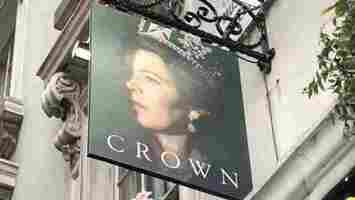Study: Perfect strangers can identify you using only 3 songs from your playlist
A group of researchers from Tel Aviv University recently discovered how shockingly easy it is to identify a person based on a tiny sample of their musical listening preferences.

The gist: When companies such as Spotify use your data to train its AI, they remove all the identifying markers such as your name, account number, or anything else a computer or person could use to immediately identify you. What’s left is the raw data on your listening preferences such as how many times you’ve listened to a track and whether you’ve given a track a thumbs up or not.
The big idea here is that Spotify and Pandora don’t need to know who you are in order to serve you the music you like. And this matters because privacy is a huge issue. We have to take companies at their word when they claim they won’t sell our private information or exploit our identities for third-party companies.
The research: Data doesn’t change when you remove labels, it still holds the same information even if you don’t know who generated it. And that means, given enough data, a powerful enough system can usually trace it back to the person responsible.
This is a scary prospect for people who care about their privacy, but typically there isn’t much to worry about. Companies such as Spotify take great pains to protect their data as it’s usually in their best interest to safeguard their users.
However, there’s no way for companies to protect us from good old fashioned human intuition.
Per the Tel Aviv team’s paper :
The experiments: The researchers didn’t use algorithm-busting AI or digital privacy-smashing techniques to de-anonymize data, they just asked study participants to look at playlists containing only three song selections and decide who, among a group of strangers, each list belonged to.
Per a university press release :
Quick take: This is astounding. The small study population (N=150) makes it less-than-perfect, but the resulting accuracy is certainly unexpected. What’s most important here is that humans typically aren’t trained to extract high-level features from anonymized data.
That means this experiment proved efficacious in a void. A bad actor could apparentley use techniques as simple as combining human intuition with sorting algorithms to de-anonymize data containing more important identifying features than just what songs we’re likely to listen enjoy.
As the researchers conclude, “In the digital world we live in today, these findings have far-reaching implications on privacy violations, especially since information about people can be inferred from a completely unexpected source, which is therefore lacking in protection against such violations.”
You can check out the full study here .
How to create an AI that chats like you on WhatsApp

This AI is unimpressed by Gillian Anderson’s casting in The Crown
The Crown has returned to Netflix with a host of new actors joining the star-studded cast. But a new AI analysis suggests not all of them have the royal touch required for their roles.

The system was developed by Largo Films , a Swiss firm that provides data-driven analytics to the movie industry. The company used machine learning to predict which of the thespians will capture the public’s hearts — and which ones will have them dreaming of the guillotine.
The AI analyzes movie scripts and footage from Largo’s database of films to create a ‘DNA footprint’ for each actor comprised of more than 1,000 on-screen attributes, such as character typology and story elements
“The system also knows how the audience reaction was for those films from the financial results and trend parameters,” Sami Arpa, CEO of Largo, told TNW. “From the analysis of over 400,000 films, it understands what are repeating successful patterns for each actor which helps us to create a DNA footprint of the actor.”
The system also creates a separate DNA footprint for the actual characters, such as Princess Diana. It then looks for correlations with the actor’s footprint to assess how well they’ll fit the role.
It then calculates a final score for each actor’s suitability for their role. A score of over 90% indicates an excellent match, while one below 80% indicates a risky choice that could make viewers reach for the remote.
Who’s fit for The Crown?
The casting of Gillian Anderson as milk snatcher Margaret Thatcher may have attracted the most headlines, but some critics have panned her performance. The BBC’s Will Gompertz accused her of “over-egging her Thatcher impression to such an extent she is close to unwatchable at times.” This seems to align with Largo’s system, which gave the former X-Files star a lackluster 76.3%.
However, the breakout star Emma Corrin fared far better, with an impressive 90.6% score for her role as Princess Diana — just ahead of Australian actor Elizabeth Debicki (88.1%), who will replace her from season five.


Olivia Coleman also performed well, with a score of 88.6% for her compatibility with Queen Elizabeth II. Her successor Imelda Stauton did even better, with 91.2%, but Largo’s top choice for the monarch is Ozark star Janet McTeer (94.1%).
Largo also analyzed the compatibility of the rumored cast for season five.
Speculation is rife that Dominic West will take over from Josh O’Connor to play Prince Charles. But Largo gave him a score of just 69.8%, way behind their top pick of Poldark heartthrob Aidan Turner (96.1%).
We’ll find out soon whether The Crown’s casting team agrees with the AI‘s analysis.